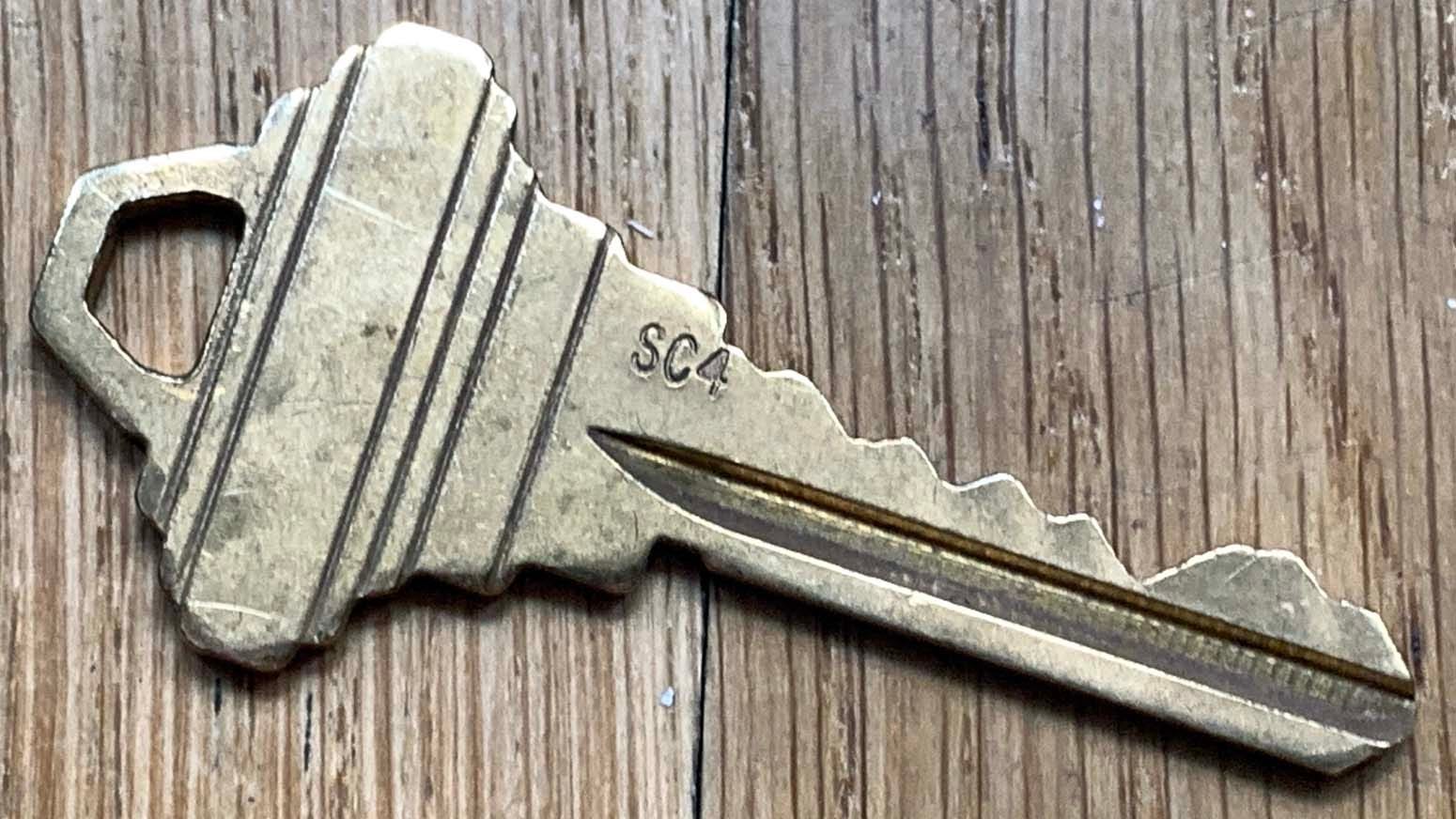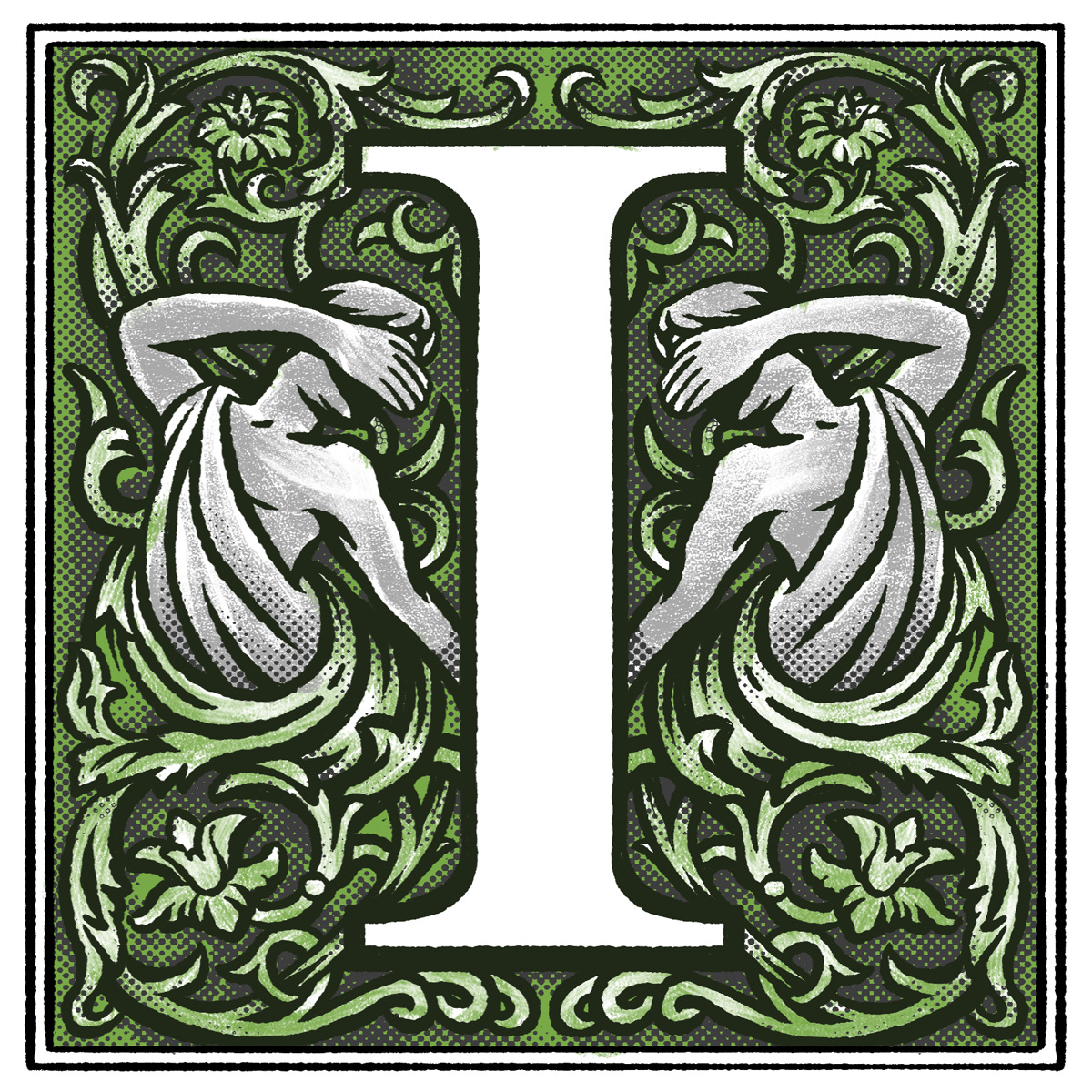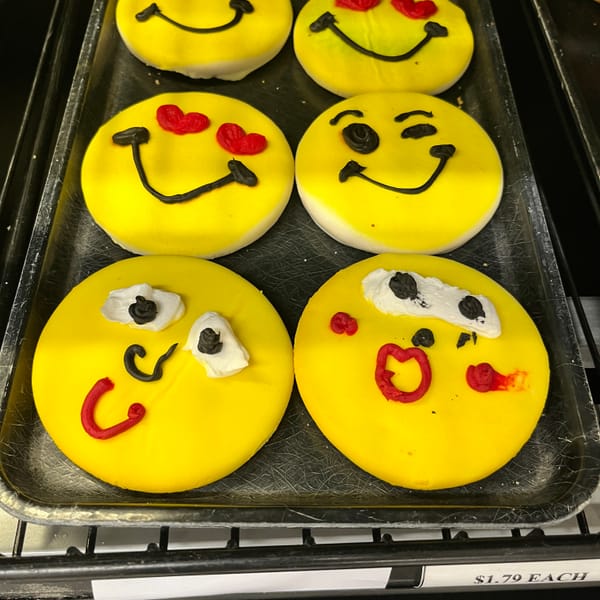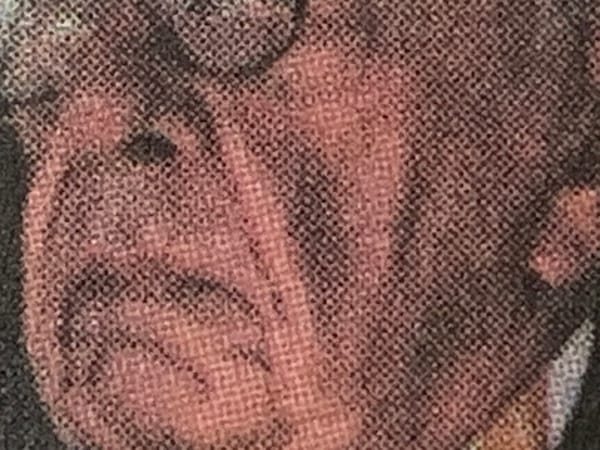INDIGNITY VOL. 3, NO. 30: Locked into habit.
DISPOSSESSIONS DEP'T.

EASY LISTENING DEP'T.
The Indignity Morning Podcast is also available via the Apple and Spotify platforms.


WEATHER REVIEWS
New York City, March 6, 2023
★★★★ Pink light came up on the buildings under a sky with no clouds in sight. A ray of sun somehow cleared the roof of the apartment building from the rear, bounced off a brownstone window opposite, and came back low and straight enough to cross the whole living room and dining table, thread the kitchen pass-through, and cast a bright patch on the tiles below the microwave warming leftovers for the lunch thermoses. At midday the sky was gray and the wind bit harder with each passing moment of the short walk to get tea. The orange hoodie, rescued from the closet floor, was not really enough for the conditions, but the reading glasses that had been missing for months turned up in the pocket. By school dismissal, blue had rallied back in the northern sky, and it kept spreading till open and warming sun came up from the south and west, silvering the rocks and the wet patches on the path. A chilly wind seemed to be following right behind the sun, though the weather app and the quickly changing conditions overhead said it should have been blowing the opposite way. Within 10 blocks of walking, the sky had gone from half-clear to fully emptied out. It was worth the effort to cross the avenue early and walk on the sunny side. Between dinner and the start of class, the moon came up full and flawlessly round. By break time, it had slid sideways behind the adjoining building, with only a thin silver blur sticking out to show where it went.


DISPOSSESSIONS DEP’T.
The Front Door Key
WE GOT A knock on the apartment door, which never happens, and there was the super, telling us he'd just changed the building's front door lock. He handed us two silver-colored keys.
It was unexpected, but it was high time. The old front door lock was terrible. You had to turn the key ridiculously far, a bit further than the natural turning limit of your wrist, to get it to catch, which left your arm with no leverage, so that the rest of your body had to do the work of pushing the door open. I was always afraid I would try to shove the door before the key had fully engaged and I'd end up smashing the door glass with my knee. The key itself was slightly warped around its rotational axis from all the extra torque.
Now, as simple as that, there were new keys. It was time to do the key-swapping maneuver: use the back edge of the hole in the old key to pry open the key ring, thread the hole in the new key onto the ring beside the old one, and then drag them both around the circle till the new one pops into place and the old one drops off. Magic.
And so here was the old brass key, unattached, loose and weighty for its size in the hand. A sturdy object, made to last forever. I didn't need it.
I didn't need it? Until the super came knocking, I'd needed that key just about as much as I needed anything else in the world. I physically couldn't make myself step out over the threshold without brushing my right front pocket to feel the key ring there. Every time I left home, the key was the guarantee I could come back. The cat wouldn't starve, the kids would go to bed before midnight, the papers I'd put down on my desk could be picked up again and read—all because that key would let me in the building door, into my life.
Now it was, rationally speaking, junk. The hardest things to throw away—the most fundamental source of clutter—are the ones that were originally essential to hold onto. You spend a whole vacation with the rental-car folder in your pocket, ready to show it to whoever might demand it, and then you show it one last time at the rental-car dropoff, and no one ever wants to see it again. You're done with it. (The people at the rental-car dropoff ask you: is the car key in the car? You put the car key in the car. You get out of the car and you leave the car key there, violating a basic sequence of events. You keep the window rolled down, just in case.)
On the edge of a bookshelf in our last apartment, by the foot of my side of the bed, there used to be a stack of those battered Avis sleeves, along with old appointment cards, receipts, and other slips and wads of paper that had been, at one point, indispensable. I would take them out of my pockets when I got undressed, register the fact that I no longer specifically needed to keep carrying them on my person, and abandon that line of thought right there—before it could reach the question of whether I needed them anymore at all. Surely I needed them a little, enough to set them down somewhere, to keep them for a while, against the risk that they might become vitally important again. As soon as they left my hand, they became invisible.
Finally sometime, maybe when it was time to move—and to get rid of those bookshelves—I belatedly, consciously recognized what I had been doing all along. It was stupid! Those papers were nothing but litter! I threw them away, and I set about retraining my mind to recognize that fatal moment of hesitation and to overcome it. What if I—no! But—no! Trash! Trash trash trash!
It was a simple enough principle, once I recognized it. But: the key. The key? What if there was some sort of terrible mixup and the old lock came back? The message Do Not Lose This Key was a frozen switch deep in my mind, somewhere deeper than mere reason could go. I put my old key in the front corner of my right-hand desk drawer, along with the old key I'd swapped off my wife's keychain.
A few days later, after getting more copies of the new key made, I gave the older boy one of the new ones and took the old key off the keychain he was using. This was the key from the set I'd gotten when we first got the apartment, with red tape on it identifying which key it was. It meant we owned the place. I thought about what I was doing, and then I went over to my desk and, instead of putting it in the drawer, I tossed it into the wastebasket underneath.
This was less decisive a gesture than it could have been, with the other keys still safe in the drawer. I understood the uselessness of the old keys, I really did. As the days passed, I got the feel of it, gathering focus and resolve. After a concert, I found the tickets—great seats—in my pocket, and I immediately threw them away. Deep down in my parka, where I only noticed it when out and about, was a lanyard with my parental photo I.D. card from my younger son's elementary school. I'd barely, if ever, had the chance to use it before the pandemic hit. He's in middle school now. I remembered the lanyard and into the trash it went.
Getting rid of the door key, though—
OK, so.
There!
I got up from the computer, just now, went to the desk, fished the two keys out of the drawer, and threw them away. Gone. My front door key, the one that lets me in, is on my key ring in my pocket. That still gives me plenty to worry about.

SANDWICH RECIPE DEP’T.
WE PRESENT INSTRUCTIONS for the assembly of select sandwiches from Recipes of the Women’s Club of San Mateo, compiled by May Robinson Thomas, Dietician, published in 1909, found in the public domain and available at archive.org for the delectation of all.
CHEESE AND ANCHOVY SANDWICHES
2 tablespoons butter
1/4 cup grated American cheese
1/2 tablespoon of vinegar
Salt, paprika, mustard and anchovy essence
Cream the butter and cheese together; add vinegar and season with salt, paprika, mustard, and anchovy essence; spread mixture between thin slices of bread.
—Mrs. J. C.
If you decide to prepare and enjoy a sandwich inspired by these offerings, kindly send a picture to us at indignity@indignity.net.

Thank you for reading INDIGNITY, a general-interest publication for a discerning and self-selected audience. We depend on your support!





